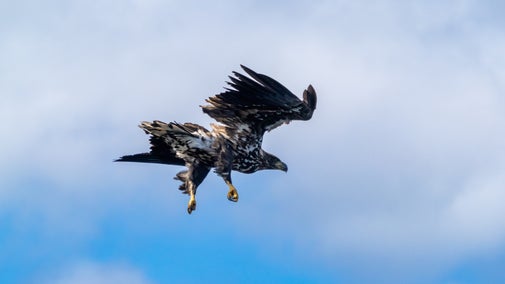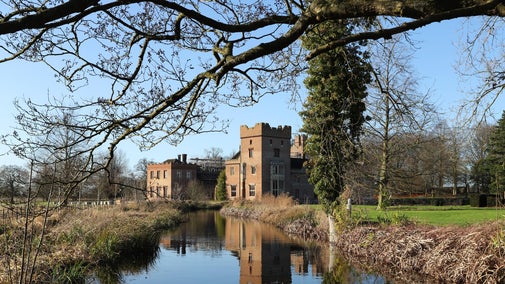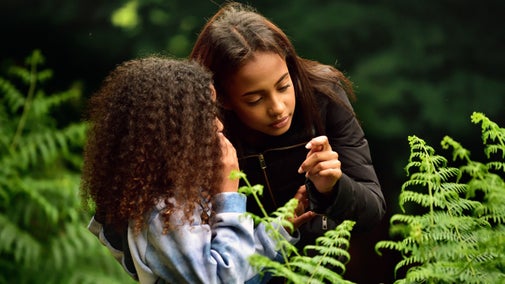
Donate
Everyone needs nature, now more than ever. Donate today and you could help people and nature to thrive at the places we care for.

The National Trust staff and volunteer team look after nearly 400 nest boxes across Brownsea Island, which provide homes for a variety of birds, red squirrels and bats. Here we explain a little more about what the rangers and volunteers find on their yearly rounds.
Each year, all of the nest boxes are checked in May and September to see if they are in use, and then any repairs are carried out in February. This volunteer led project has been running since 1997, the team check 400 bird, bat and squirrel boxes in May and September. The results from 2025 are listed below.
In 2025 our volunteer team recorded 90 tit nests overall, including 39 blue tit, 11 great tit and 2 coal tit nests. The remainder were recorded as ‘unknown’ because they were either empty or had eggs or young chicks that could not be identified to species. Although more nests were identified for each species this year, the overall number of nests was lower than in 2024. (Last year 109 boxes were identified, including 3 for tawny owl.)
Results for owl boxes were also down compared to 2024, with no boxes showing signs of use by tawny owls. Instead, the team found that wood pigeons, stock doves and red squirrels were making use of the owl boxes.

Although squirrel boxes are clearly identified (with little porches on the side), squirrels will quite happily hijack any other box they can lay their paws on. Red squirrels continued to take advantage of the purpose-built squirrel boxes, along with the owl boxes and a handful of bird boxes. Overall, 59 boxes showed signs of use by red squirrel, sadly a number of dead squirrels were also found (2 in May and 6 in September).
The project also includes around 140 bat boxes, over half of which are hand made from untreated timber.
Many of our bat records are based on the presence of droppings, which indicate that bats have used the boxes. Since 2015, we've found that large numbers of pipistrelle bats congregate in some of our specially-designed wooden bat boxes to form maternity roosts.
Bat records remained steady with pipistrelle bats found across the island, including a large maternity roost near Rose Cottage and another likely maternity roost on the Woodland walk. A dozen or more brown long-eared bats were in residence inside the Robert Riggs Hibernaculum on Middle Street. The volunteers found it difficult to count these bats because they were tucked in and around wooden boxes and boards, which are fixed to the walls to provide shelter for them. It was also a good year for natterer’s bats with at least 29 recorded in May and 38 in September. In addition, the team found 2 noctule bats in September.
With your ongoing support, we're able to continue our vital conservation work. Thank you for helping to protect these special places.

Everyone needs nature, now more than ever. Donate today and you could help people and nature to thrive at the places we care for.
Take a walk on Brownsea Island, Dorset, and encounter a variety of birds and other wildlife that calls this island sanctuary in Poole Harbour, home.

We believe that nature, beauty and history are for everyone. That’s why we’re supporting wildlife, protecting historic sites and more. Find out about our work.

Read about our strategy, which focuses on restoring nature, ending unequal access and inspiring more people.
